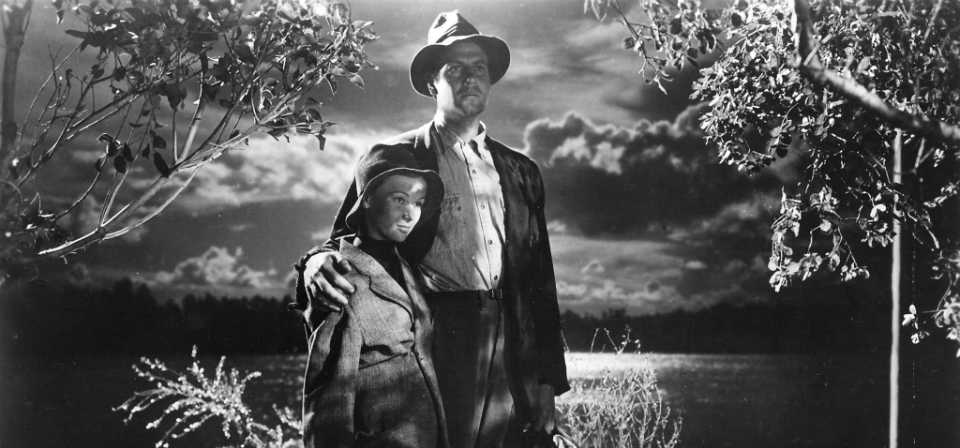My Man Godfrey (1936)
Possibly the screwiest of all screwball comedies, My Man Godfrey is the ultimate Depression-era satire of the idle rich and tribute to the noble poor.
Caveat Spectator
Comic depiction of inebriation and hangovers.This popular screwball theme was never more devastatingly realized than in My Man Godfrey’s opening sequence, which begins with a pair of spoiled society-brat sisters (Gail Patrick and Carole Lombard) show up at a city dump looking for a "forgotten man" — as part of a cocktail-party scavenger hunt!
What they find is a down-and-out derelict named Godfrey (William Powell), whose rumpled dignity, ironic cynicism, and self-aware mien seem hardly typical of his station in life. Finding one of the sisters less condescendingly offensive than the other, Godfrey accompanies her back to the party, and winds up guardedly accepting a role in their sibling rivalry by becoming her "protégé" and the family butler. Godfrey, naturally, has a secret, as does the family he works for: They’re completely daft.
My Man Godfrey is social satire at its broadest; unlike Sullivan’s Travels there is no nuance in the picture of the rich as less worthy than the poor. And, between the heroine’s relentless flightiness and the hero’s implacable self-possession, the romantic angle is less effective than in Bringing Up Baby or It Happened One Night. But for hilariously outrageous behavior and merciless satirical zaniness, My Man Godfrey is an unsurpassed comic treasure.
Related

Sullivan’s Travels (1941)
The comic genius Preston Sturges believed that laughter is the best medicine, and that what people in hard times want is to forget their troubles and escape for 90 minutes or so into a world of lighthearted comedy, snappy repartee and slapstick silliness.
Platinum Blonde (1931)
This theme of romantically linking an upper-class society girl and a man beneath her station would become a popular device in screwball comedies, appealing to Depression audiences both as escapist entertainment and as satire of the idle rich and celebration of the hardworking poor.
Recent
- Benoit Blanc goes to church: Mysteries and faith in Wake Up Dead Man
- Are there too many Jesus movies?
- Antidote to the digital revolution: Carlo Acutis: Roadmap to Reality
- “Not I, But God”: Interview with Carlo Acutis: Roadmap to Reality director Tim Moriarty
- Gunn’s Superman is silly and sincere, and that’s good. It could be smarter.
Home Video
Copyright © 2000– Steven D. Greydanus. All rights reserved.